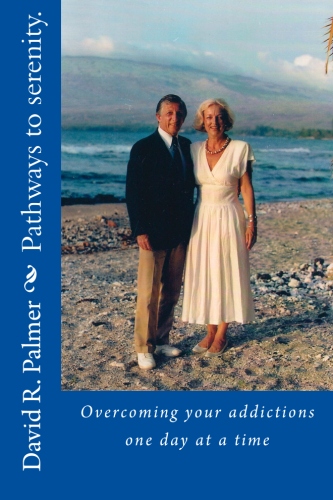At Our House, it’s the children who get people choked up. It’s the baby blissfully being rocked or a little girl, with tongue stuck out, concentrating on putting a puzzle together with a gentle prompt from a volunteer.
Most of these children have been neglected and some abused, but today they are safe with a staff member or with a supervised parent who is trying to get well and learn how to be responsible.
Our House, which has space for 110 people, offers separate housing for homeless men and women as well as units where families can stay together for up to two years. Adults are required to have permanent, full-time jobs and are expected to save 75 percent of their earnings.
It is a place where homeless families and individuals can come and build a new life by dealing with their mental health issues, addiction problems or the other challenges that led them into homelessness. It’s a place where they learn how to live in the real world. When they leave, most will have a plan for dealing with emotional and substance abuse problems, a strategy for living and a bank account.
The record shows that 80 percent of those who leave Our House move up in housing, 71 percent have savings and 63 percent have full time jobs.
Our House has a 24-year history of service to the homeless dating back to 1987. Joe Flaherty launched it in the old parish hall of St. Andrews Catholic Church with the support of local churches and synagogues. It is now located on Roosevelt Road near the I-30 overpass.
Today, with its young executive director, 30 year-old Georgia Mjartan, who has the credentials and compassion to do the job, it is regarded by many as the top facility of its kind in Little Rock.
On a bitterly cold morning in early February, Mjartan greets guests who have come for a tour of the facility and a light lunch.
She is dressed in stylish boots and jacket with upswept auburn hair and a big smile. She goes down the line of a dozen visitors awaiting seats at the lunch tables shaking hands and introducing herself.
When the guests are seated, Mjartan gives them a briefing emphasizing that our House “is not a homeless shelter, and it’s not charity. It’s a community.”
What I have worked more than any one program to create,” she continues, “what we’ve all created, what our staff has created, what our volunteers have created—is a community.”
And for the good of the community, those who do not choose to follow the rules cannot stay, Mjartan says.
Mjartan, whose father is Little Rock lawyer Peter Miller and her mother, clinical social worker Karen Miller, has both undergraduate (University of Arkansas at Little Rock) and graduate (University of Ulster in Belfast, Northern Ireland) degrees and management consulting experience.
Mjartan double majored in political science and English at UALR and withdrew from the Rhodes Scholarship process to accept the Mitchell Scholarship award given to 12 American students per year on the basis of their scholarship, leadership and commitment to public and community service.
The scholarship, which Mjartan received in 2003, enables students to pursue graduate degrees in Ireland and is named in honor of Sen. George Mitchell for his role in brokering peace in Northern Ireland. Mjartan received her masters’ degree in Public Affairs and Political Communication from the University of Ulster.
After college she went to work with Ken Hubbell and Associates in Little Rock managing a contract for a $40 million community development project with the W.K. Kellogg Foundation’s Mid South Delta Initiative.
It has not been all work and no play.
One of the other students in her Donaghy Scholars class at UALR was Dominik Mjartan, who is, today, her husband and senior vice president at Southern Bancorp, the nation’s largest rural development banking organization.
They became a couple as freshmen, dated all though college, married in June 2002 about two weeks after graduation from UALR and moved to Ireland as newly weds.
Now, both work for organizations that have a focus on giving the less fortunate a leg up but with accountability. Southern Bancorp’s founding directors included Hillary Rodham Clinton, Thomas F. (Mack) McClarty, Rob Walton and others. Little Rock entrepreneur/investor, Walter Smiley, founder of Systematics and president of Smiley Investment Company, is chairman and interim CEO of Southern Bancorp.
Both are athletic. Mjartan got her first job at Little Rock’s Willow Springs water park as a lifeguard at age 15. She became an accomplished diver and gymnast and played soccer. Today she plays soccer three days a week (Dominik also plays) and works out in a gym another two days.
Mjartan was recruited to serve on the board of Our House seven years ago, at the age of 23, by advisory board member and philanthropist Beth Coulson. Two years later, faced with financial and operational difficulties, the board fired its executive director who had only had the job for six months and persuaded Mjartan to take the job.
Working with the board, Mjartan has made notable improvements during her five years.
She has added programs to help clients improve their lives, including free child care and preschool summer and after-school programs, on-site drug and alcohol programs and programs to teach job skills, job-search skills and basic adult education. She also brings in volunteers to help in areas such as financial literacy, parenting and dealing with domestic violence.
Melissa Farrell, 42, a drug addicted mother now in recovery at Our House, had sixty-four days of clean time, when I first met her, and is a good example of how the program works.
Melissa came to Our House bringing with her two of her children, aged seven and ten. They live together in a small but cozy bedroom with a TV set. They use a communal bathroom, and she prepares their meals in a kitchen all the mothers share.
Prior to her arrival, Melissa and her children lived in a filthy and dangerous “meth” house in downtown Little Rock barely a mile away. She herself was using drugs but had a part-time job. Still she didn’t dare leave her children alone in a wretched place overrun with people she describes as “animals.”
Sitting in the kitchen after the bustle of lunch hour, she talks about a life dominated by drug abuse and its consequences, and gently wipes her eyes with a tissue in the telling of it. Her story, while somewhat different from others in the details, is otherwise all too common.
Melissa, who also has a 25-year old daughter and a granddaughter, was raised, absent her addicted parents, by a grandmother who may have been well meaning but was limited in her ability to help.
Melissa found alcohol at age 12, soon graduated to stronger drugs, dropped out of school, sold drugs on the street, spent time in several jails and prison, took up with men who abused and abandoned her and their children. Tragically, it is a familiar story.
She did get a taste of recovery along the way, first with a 45-day stay at Gateway House in Fort Smith, a “rehab” facility, and later, three years ago, with Little Rock’s UAMS-sponsored Arkansas Cares program where she stayed six months with her young children.
Melissa has been at Our House for more than a year, and is working toward an outside job, but for now she has duties at Our House. On this cold February day she sits in a warming hut greeting visitors driving up for the monthly open house tour. When the parking duties are over she goes back to the building where her apartment is for the interview.
“You know,” she says after talking about her drug abuse and multiple mistakes in life, “since I’ve been here, I’m beginning to learn how to go about things.”
She had always had a faith in God in varying degrees, she says, but she had never really understood how the game of life is played.
“It’s all about making good choices and taking responsibility,” she says. “Nobody is going to mess up my life but me. What happened to me is not something somebody else did.”
Part of what she wants to do is raise her children better.
“If I don’t tell my son how to live,” she says, “who will?”
On the way back to her job at the parking lot, she stops to pick up a cigarette butt, puts it in a nearby receptacle, then quietly turns and says with a smile and tears in her eyes, “You know, last Sunday at my church my family filled up a whole pew.”
Interestingly, Mjartan has also undergone a spiritual transformation.
In January, four years ago, one year into her job at Our House, Mjartan became a Christian. In this she was encouraged by Corey Ford, the facilities manager at Our House, a recovering alcoholic and former prison inmate who had dealt with his addiction and revived his own Christian faith in God while attending the Celebrate Recovery program at Fellowship Bible Church.




